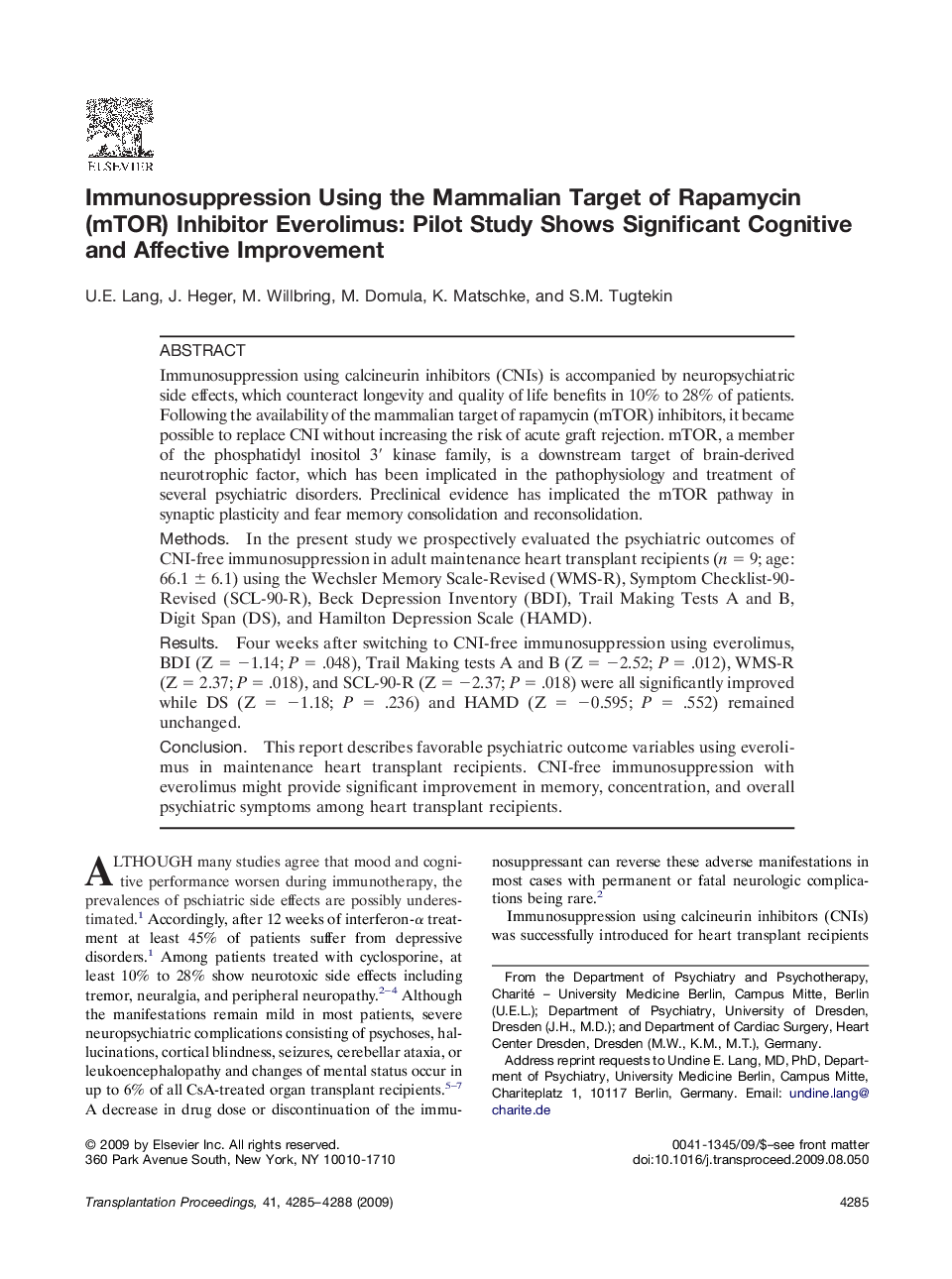| Article ID | Journal | Published Year | Pages | File Type |
|---|---|---|---|---|
| 4258505 | Transplantation Proceedings | 2009 | 4 Pages |
Immunosuppression using calcineurin inhibitors (CNIs) is accompanied by neuropsychiatric side effects, which counteract longevity and quality of life benefits in 10% to 28% of patients. Following the availability of the mammalian target of rapamycin (mTOR) inhibitors, it became possible to replace CNI without increasing the risk of acute graft rejection. mTOR, a member of the phosphatidyl inositol 3′ kinase family, is a downstream target of brain-derived neurotrophic factor, which has been implicated in the pathophysiology and treatment of several psychiatric disorders. Preclinical evidence has implicated the mTOR pathway in synaptic plasticity and fear memory consolidation and reconsolidation.MethodsIn the present study we prospectively evaluated the psychiatric outcomes of CNI-free immunosuppression in adult maintenance heart transplant recipients (n = 9; age: 66.1 ± 6.1) using the Wechsler Memory Scale-Revised (WMS-R), Symptom Checklist-90-Revised (SCL-90-R), Beck Depression Inventory (BDI), Trail Making Tests A and B, Digit Span (DS), and Hamilton Depression Scale (HAMD).ResultsFour weeks after switching to CNI-free immunosuppression using everolimus, BDI (Z = −1.14; P = .048), Trail Making tests A and B (Z = −2.52; P = .012), WMS-R (Z = 2.37; P = .018), and SCL-90-R (Z = −2.37; P = .018) were all significantly improved while DS (Z = −1.18; P = .236) and HAMD (Z = −0.595; P = .552) remained unchanged.ConclusionThis report describes favorable psychiatric outcome variables using everolimus in maintenance heart transplant recipients. CNI-free immunosuppression with everolimus might provide significant improvement in memory, concentration, and overall psychiatric symptoms among heart transplant recipients.
